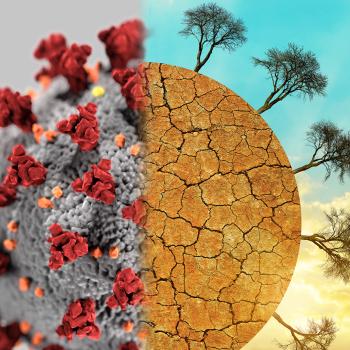Within a short period of time, the COVID-19 (Coronavirus SARS-CoV-2) pandemic has fundamentally changed our lives worldwide with massive impacts on all fundamental systems: from health and well-being to economic, financial and political systems, food production and supply chains, to education, work and social life. It demonstrates the systemic nature of risk in a highly interconnected world challenging existing governance mechanisms. Thus societies need to learn and develop new approaches of dealing with these systemic risks.
Climate change related systemic risks have the potential to be an even greater threat than those of the COVID-19 pandemic. Both crises need a global approach, both threaten reaching the Sustainable Development Goals (SDGs) and postponement makes the situation worse. In either case the poor are disproportionally affected. As with COVID-19 communication, fake news and social media play an important role, and science, technology and governance are crucial for societal resilience in face of climate change systemic risks.
We want to debate if the systemic risk awareness gained by COVID-19 is transferable to systemic climate risks - and vice versa? What are the lessons learned in both directions and what conclusions can be drawn?
The organizers acknowledge co-funding by the Deutsche Forschungsgemeinschaft (DFG, German Research Foundation) via the Gottfried Wilhelm Leibniz Prize to Markus Reichstein (Project 427307986).



